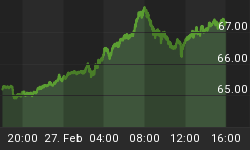
Many of the leading fund managers in the U.S. and elsewhere are expecting that governments will confiscate their citizen's gold. This will not be for the same reasons used in 1933. It will be to facilitate loans, swaps lower interest rates, and shore up international confidence in the turbulent, stressed paper-currency world in which we live. Each nation issues paper as money, dependent on the trust that nation can engender at home and abroad. But is this going to be sufficient, moving into an ever more turbulent 2012?
Traditional Use of Gold in Reserves
When gold was deemed money in the world under the Gold Standard, money was issued against the stock of gold a nation had -this formed the basis of the money supply. In 1933 as the Depression wreaked damage to the U.S. economy, the government needed to expand the supply of money to the economy, dramatically. The first step was to confiscate their citizen's gold at a price of $20 per ounce. Two years later in 1935, the U.S. government devalued the dollar by 75% to $35 an ounce. This expanded the U.S. money supply by far more than 75% because of the additional gold in government vaults.
As U.S. influence spread abroad after the war, the need for a vast increase in global money supply and, in particular, the number of dollars outside of the U.S. (then limited to the amount of gold in U.S. coffers) the restraint on money supply was unbearable on the U.S., so it eliminated gold from its active role in the money system and replaced it with the USD, tied as it was to the oil price.
Thereafter, gold was relegated to the vaults as an important but passive, reserve asset. Now, we're led to believe that central bankers feel that the amount of gold they should carry is either 3-months' worth of international trade, or between 10 and 15% of total foreign exchange reserves -as though this is all it would take to resolve a crisis. Such formulae test credibility to the limit.
Uses of Gold in the Last Couple of Years in the Monetary System
But in 2011, the use of gold to fund a Eurozone bail-out implied was raised. A draft of the European Commission study on joint Eurobonds is the suggestion that gold could be used as collateral for them. It did not receive more than token recognition; the issue, however, was at least addressed in theory. Its use was not related to the expansion of the money supply -the suggestion did not imply any mobility as money at all. A new role for gold in official uses was starting to get recognition.

In 2010, gold was used by the Bank of International Settlements in currency swaps, giving little-to-no information as to the identity of their clients. Over 500 tonnes of gold was used in the currency / gold swaps. These did not relate to practical money raising, but to gold being used as collateral to facilitate cheaper and larger loans to the banks to provide liquidity where it was drying up. The stories came that gold was being used by commercial banks -who don't hold gold on their balance sheets--but the only place they could get gold from was from central banks. So was it a dire need by commercial banks for liquidity or was it an attempt by central banks to cap the gold price? We might never know...But in 2011 these swaps were reversed, and the gold left the B.I.S. in the second half of the year [2011] gold lease rates dropped heavily into negative territory, telling us that central banks were lending gold again to banks at incredibly cheap rates -this coincided with the fall in the gold price from over $1,900 to current levels.
Irrespective of the reasons why, the most important feature of these actions was that gold came into use in the interbank monetary system yet again. And this happened at a time when European central banks had ceased selling their gold and the rest of the world began to steadily increase their central bank holdings.
Despite its passive role the U.S., Eurozone central banks hold nearly 20,000 tonnes of gold -worth nearly a trillion dollars; however and much to politician's angst, this gold is not available to fund government borrowing; it would contravenes the Maastricht treaty which founded the Eurozone. Gold remains far too important to use in such financing. It will only be used if the very national structure of its money is in danger or in support of making a nation's monetary system function internationally. But bullion could and is being used as collateral.
For prospective investors (no doubt including emerging market governments, sovereign wealth funds, and the like) the appeal comes from the likely hedge that gold would provide against an immediate default. If a country such as Italy were to default, most believe the price of gold (in Euros and in the USD) would skyrocket...
Member's only:
Get the rest of the report. Subscribe @
www.GoldForecaster.com / www.SilverForecaster.com















